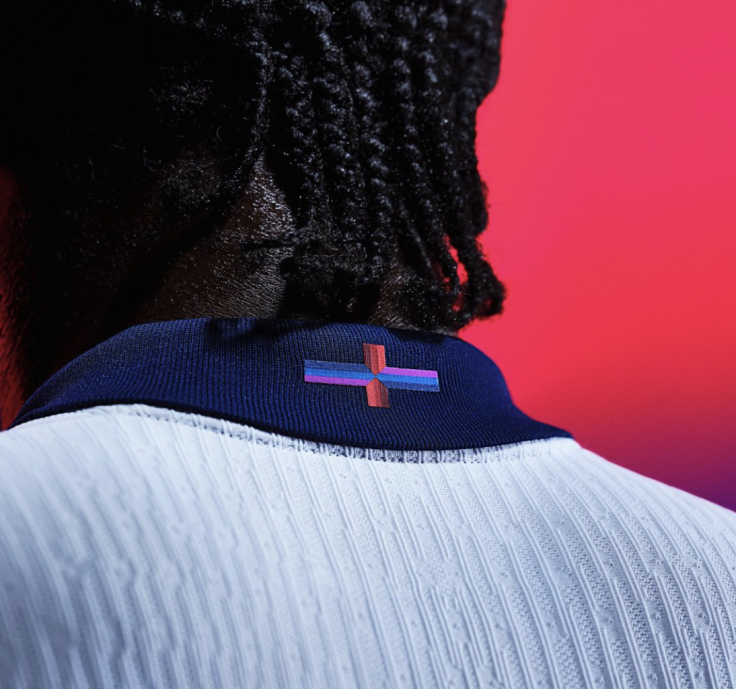Americans Designed Nike's 'Woke' England Jersey; Why Don't They Change Their Flag's Colors, Too?
Criticism mounts against Nike as fans slam the redesign of St. George's Cross

Nike, the American sportswear behemoth, has found itself at the centre of a storm after unveiling the new England football shirt for Euro 2024. The controversy stems from redesigning the iconic St. George's Cross, with critics accusing Nike of cultural insensitivity and labelling the move as "woke."
However, beyond the artistic debate, this saga has a significant business aspect, including the involvement of American designers, the exorbitant price tag attached to the kit, and the broader implications for Nike's brand image.
At the heart of the matter is the redesign of the St. George's Cross, a symbol deeply ingrained in English national identity. Nike's decision to alter the traditional red and white colours to a blue and purple gradient has sparked outrage among fans, politicians, and former players.
Critics argue that tampering with such a revered symbol demonstrates a lack of understanding and respect for England's heritage.
Adding fuel to the fire is the revelation that the redesign was the brainchild of American designers. While Nike is a global brand with a diverse team of creatives, the fact that an American company took liberties with an emblem of English identity has only intensified the backlash.
Many have questioned why a symbol so profoundly rooted in English history was entrusted to designers from across the Atlantic, highlighting a disconnect between the brand and its target audience.
Moreover, the exorbitant price tag attached to the new England football shirt has further fuelled public anger. Priced at £124.99 for adult sizes and £119.99 for children, the kit has been deemed unaffordable for many fans.
This hefty price, coupled with the perceived disrespect towards a national symbol, has led to calls for a boycott of Nike products and a petition to scrap the new design altogether.
From a business perspective, Nike's handling of the situation raises questions about brand management and market research. The decision to alter a symbol as sacred as the St George's Cross without considering the sentiments of the target market suggests a need for more understanding of local culture and values.
Additionally, the high price point of the kit risks alienating a significant portion of Nike's customer base, particularly amid economic uncertainty.
Furthermore, the controversy surrounding the England football shirt threatens to tarnish Nike's brand image in the UK and internationally. While the company has positioned itself as a champion of diversity and inclusion, the backlash against the "woke" redesign suggests that its actions must meet public expectations.
In an era where consumers are increasingly conscious of corporate ethics and values, missteps of this nature can have lasting repercussions on brand loyalty and consumer trust.
In conclusion, Nike's "woke" England football shirt debacle underscores the complexities of balancing cultural sensitivity with commercial interests. While the company may have intended to modernise a classic design, its actions inadvertently sparked a nationwide outcry and risked its brand reputation.
As the fallout from this controversy continues to unfold, Nike must carefully navigate the delicate intersection of business and culture to regain the trust of its customers.
With the controversy surrounding the England football shirt still swirling, Nike faces a crucial test of its ability to respond to public outcry and safeguard its brand reputation. Whether the company will heed the calls for change or double down on its controversial design remains to be seen.
However, one thing is clear: the business implications of this debacle extend far beyond the realm of sportswear, highlighting the delicate balance between cultural sensitivity and commercial interests in today's global marketplace.
© Copyright IBTimes 2025. All rights reserved.




















